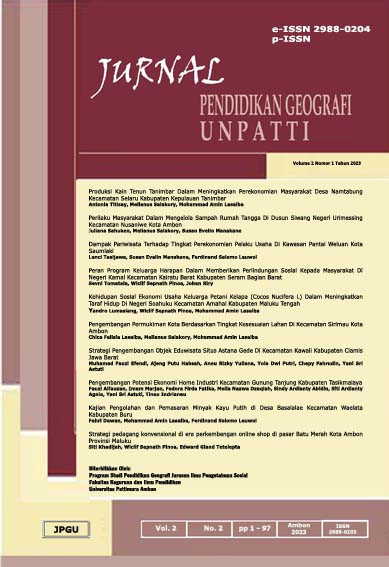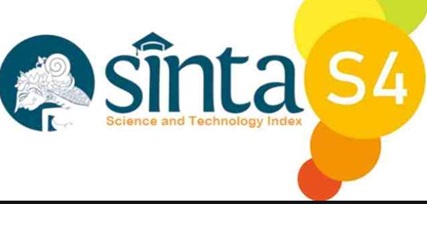Strategi Pemasaran Digital untuk Meningkatkan Kunjungan Wisatawan ke Destinasi Wisata Pantai Ngurbloat
Digital Marketing Strategy to Increase Tourist Visits to the Ngurbloat Beach Tourist Destination
Abstract
When used as a promotional tool for tourist destinations, such as Ngurbloat Beach in Southeast Maluku, social media holds immense potential to increase visitor numbers significantly. This study employs a descriptive qualitative approach with a case study method, and data is collected through interviews, observations, and documentation. The results indicate that social media, particularly Instagram and Facebook, effectively enhances the beach's visibility; however, it faces challenges such as limited human resources, inadequate technological infrastructure, and a lack of coordination among stakeholders. It is suggested that human resources training be strengthened, urgent improvements to infrastructure prioritized, and stronger collaboration between the government and local communities should be encouraged. With these steps, Ngurbloat Beach can become a more recognized premier tourist destination, attracting more visitors














